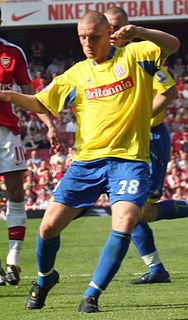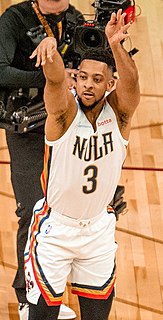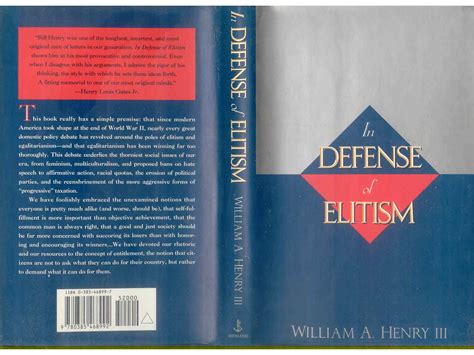A Quote by Ned Lamont
Increasing the diversity of what we teach is critical to providing students with a better understanding of who we are as a society and where we are going.
Quote Topics
Related Quotes
Extrapolated, technology wants what life wants:
Increasing efficiency
Increasing opportunity
Increasing emergence
Increasing complexity
Increasing diversity
Increasing specialization
Increasing ubiquity
Increasing freedom
Increasing mutualism
Increasing beauty
Increasing sentience
Increasing structure
Increasing evolvability
Part of what we have to do a better job of, if our democracy is to function in a complicated diverse society like this, is to teach our kids enough critical thinking to be able to sort out what is true and what is false, what is contestable and what is incontestable. And we seem to have trouble with that. And our political system doesn't help.
I say to my students that I can't teach them how to write a good song, but I can teach you how to write a better song. Talking about this idea of it being a process. By going back and not settling for something and find a way to step back from your songs-which is a very hard thing to do-but when you're stuck or you can't move forward, start doing some polishing.
I have find that today's students are often more tolerant of human variance than students in earlier generations might have been. On the other hand, some of our students need much more interaction with a wide variety of peers so they level of understanding deepens and so they are prepared to live in a world that is only going to get smaller.
Not to Learn Irish is to miss the opportunity of understanding what life in this country has meant and could mean in a better future. It is to cut oneself off from ways of being at home. If we regard self-understanding, mutual understanding, imaginative enhancement, cultural diversity and a tolerant political atmosphereas a desirable attainments, we should remember that a knowledge of the Irish language is an essential element in their realisation.
In order for us to have changes in society, we have to do a better job with listening to each other, listening to stories, listening to experiences and sharing things. That's the way you're able to come to a better understanding of people in general. We have to do a better job in society. It starts at the top.
Now teach-ins are fairly common or they become common place. But in 1965, the Students for Democratic Society in Ann Harbor organized the first teach-in. The way it happened was that we were advocating for a strike that we advocated that the faculty should strike in solidarity with the Vietnamese struggle.

































